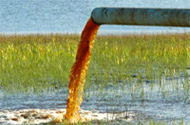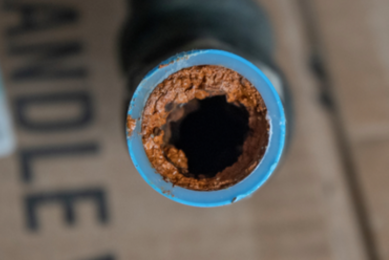UK: Farmers take on large-scale project to stop water pollution in agriculture

Farmers are getting involved in one of the largest studies of its kind to establish the best ways of halting water pollution from agriculture.
They will develop an understanding of how pollutants move through river systems and will test up to 80 methods for reducing their impact. These include satellite technology (GPS) to ensure fertiliser is spread in the right places; better-designed farm yards to stop pollution draining into fields and rivers; and designing ditches and ponds to soak up substances.
©
The Demonstration Test Catchments (DTC) project has been launched by Defra, the Environment Agency and the Welsh Assembly Government. Around 40 other organisations are involved.
©
Jim Paice, Minister of State for Agriculture and Food, said: “This large-scale project will test how farmers can reduce their environmental footprint while continuing to farm profitably and productively.
©
“Most rivers are at risk from agricultural pollution and one-in-five currently do not reach the required quality standards, so this hugely important research will help farmers make the right decisions.”
©
Monitoring pig farms
The project begins by monitoring research activities in three river catchments: Eden (Cumbria), Wensum (Norfolk) and Hampshire Avon, which represent a broad range of landscapes.© It covers a whole range of farm types including sheep and beef in Cumbria, dairy, and arable and pig farming in East Anglia.
©
Cost/ Joint Project
The five-year project, costing £6.5million, is a joint project with Defra, the Environment Agency and Welsh Assembly Government. It brings together 40 organisations including scientists, farmers, regulators, policy makers, charities and industry groups. It is part of the “Living with Environmental Change” programme – an unprecedented £1billion, ten year partnership of organisations funding and using environmental research including the research councils, government departments, devolved administrations and delivery agencies.
The five-year project, costing £6.5million, is a joint project with Defra, the Environment Agency and Welsh Assembly Government. It brings together 40 organisations including scientists, farmers, regulators, policy makers, charities and industry groups. It is part of the “Living with Environmental Change” programme – an unprecedented £1billion, ten year partnership of organisations funding and using environmental research including the research councils, government departments, devolved administrations and delivery agencies.
©
The definition of ‘agricultural pollution’ includes animal waste, chemicals, nutrients such as fertiliser, and sediment.
©
The initiative aims to ensure that Defra’s research on water is balanced against the need to reduce greenhouse gasses, protect biodiversity, reduce flooding and produce food.
©
The team hopes to develop knowledge and ideas that can be applied across the country by farmers, regulators and policy makers.
©
Examples of methods being tested include:
· Improved management of soil and nutrients;
·©Creation of wetlands, buffer strips, and planting trees;
·©Improved approaches to cropping such as ‘strip-cropping’ where only narrow bands are ploughed and sown;
·©Improving the design of farmyards to reduce pollution sources such as slurry stores, and improving drainage on farm tracks;
·©Moving high risk activities away from steeply sloping land.
©
Source: DEFRA
©
©
©











